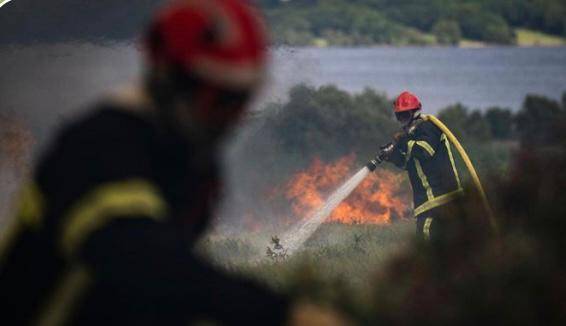Brutal heat waves are gripping both Europe and the United States this week and are forecast to dump searing temperatures on much of China into late August.
In addition to temperatures spiking above 40 Celsius (104 Fahrenheit), wildfires are raging across southern Europe with evacuations in towns in Italy and Greece.
The searing heat is part of a global pattern of rising temperatures, attributed by scientists to human activity.
Climate change makes heat waves hotter and more frequent. This is the case for most land regions, and has been confirmed by the UN's global panel of climate scientists (IPCC).
Greenhouse gas emissions from human activities have heated the planet by about 1.2 Celsius since pre-industrial times. That warmer baseline means higher temperatures can be reached during extreme heat events.
"Every heatwave that what we are experiencing today has been made hotter and more frequent because of climate change," said Friederike Otto, a climate scientist at Imperial College London, who also co-leads the World Weather Attribution research collaboration.
But other conditions affect heatwaves too. In Europe, atmospheric circulation is an important factor.
A study in the journal Nature this month found that heatwaves in Europe have increased three-to-four times faster than in other northern mid-latitudes such as the United States. The authors linked this to changes in the jet stream -- a fast west-to-east air current in the northern hemisphere.
To find out exactly how much climate change affected a specific heat wave, scientists conduct "attribution studies." Since 2004, more than 400 such studies have been done for extreme weather events, including heat, floods and drought -- calculating how much of a role climate change played in each.
This involves simulating the modern climate hundreds of times and comparing it to simulations of a climate without human-caused greenhouse gas emissions.
For example, scientists with World Weather Attribution determined that a record-breaking heat wave in western Europe in June 2019 was 100 times more likely to occur now in France and the Netherlands than if humans had not changed the climate.
Heatwaves will still get worse
Global warming is already driving extreme heat events.
"On average on land, heat extremes that would have happened once every 10 years without human influence on the climate are now three times more frequent," said ETH Zurich climate scientist Sonia Seneviratne
Comments (0)
Be respectful and constructive in your comments.




No comments yet
Be the first to share your thoughts!